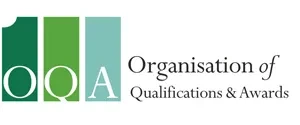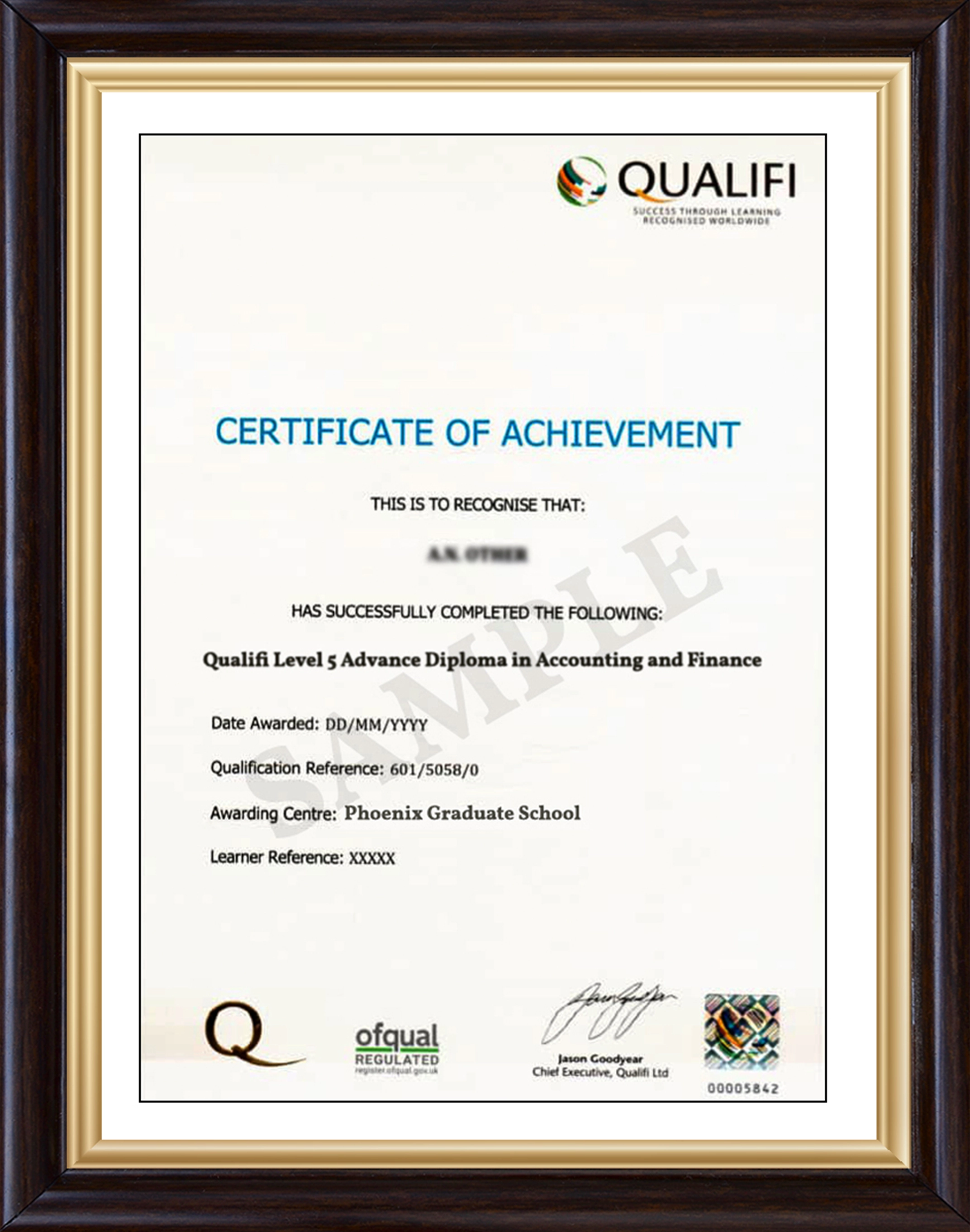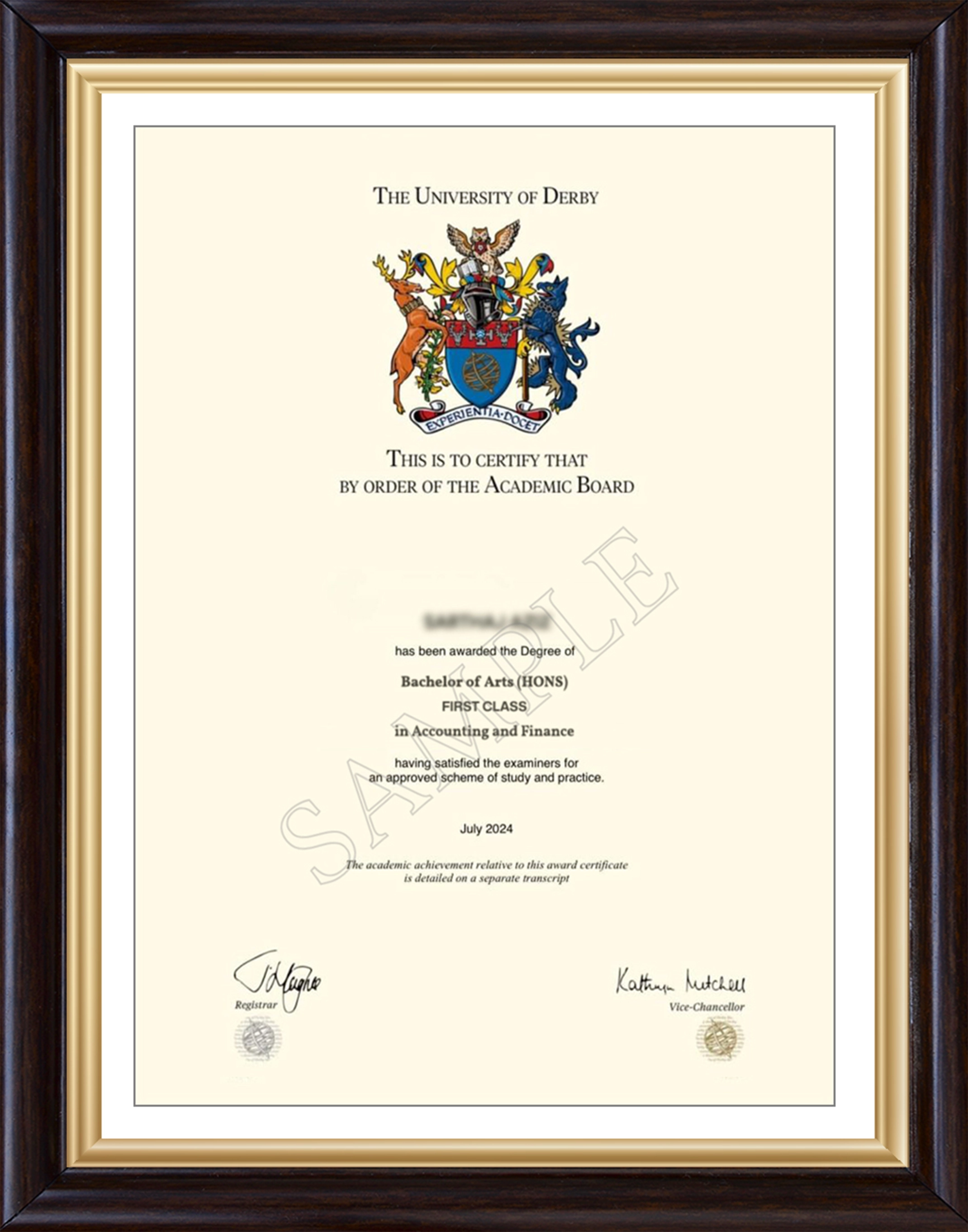Accounting and Finance University 1st & 2nd Year – Level 4 & 5
Accounting and finance are fundamental to business operations, serving as the backbone of various industries. Whether in banking, manufacturing, large service industries, or micro-businesses, the capacity to effectively manage, plan, and account for money remains the quintessential gauge of business success and the primary catalyst for growth.
The objective of the Level 4 Diploma in Accounting and Finance qualification is to provide learners with an understanding of accounting and finance within the broader business context.
The objective of the Level 5 Diploma in Accounting and Finance qualification is to equip learners with the knowledge and skills necessary for a middle manager role within an organization. This includes proficiency in financial management, financial planning and control, financial reporting, taxation, and people management.
The qualification has three stages:
- Level 4 / 1st year bachelor’s degree – 120 credits (10 modules)
- Level 5 / 2nd year bachelor’s degree – 120 credits (10 modules)
- Level 4 and 5 in Accounting and Finance is a 240 credit course designed to progress to the third stage (final year) of an Undergraduate BA/BSc (Hons) in Accounting and Finance at the University, which can either be completed on campus or via distance learning.
The qualification also enables learners to advance within employment or pursue further studies towards a BA (Hons) Accounting and Finance Top-Up degree. This can be achieved with advanced standing at many Universities in the UK and overseas.
What will you do as an Accounting and Finance Professional?
- Solid grounding in core elements of accounting and finance
- Analyse and forecast financial performance
- Real-world experiences and industry insights
- Provides perfect academic credentials to fast-track you on a path to becoming a qualified accountant
- Learn the basics of business law, accounting, and economics
- Make data-driven investment and budgeting decisions
- Align financial management with strategic business goals
- Use digital tools and systems for financial analysis
Accreditation
All PGS courses are accredited by the relevant partners and awarding bodies.
First Year
-
The business environment
Explore issues outside of the business that may affect the business and its operations. Looking into economics, international dimensions, nature and competition.
-
Managing and using finance
This module covers key areas of accounting, as viewed from a business perspective, explaining how accountancy can inform and guide management decisions.
-
Maximising resources to achieve business success
An organisation that fails to dedicate sufficient attention to its use of resources will prove to be unprofitable over time. By being observant and prudent, any organisation can achieve significant gains from the management of its resources.
-
Quantitative skills
Upon successful completion of this module, learners will possess knowledge of numeric exercises and understand their application within the context of business.
-
Basic accounting
On completion of this module, learners will understand accounts and how they can be used to give insight into the health of the organisation.
-
Budgetary control
This module aims to explain methods of financial control using budgets. This includes development and implementation of departmental budgets, which are combined to form a master budget.
-
Financial performance
This module aims to demonstrate how financial performance can be assessed in organisations. This includes the use of financial statements, and accounting standards. It also examines ways for raising finance over different periods of time.
-
Financial ratios
This module aims to demonstrate the application and meaning of the commonly used financial ratio. This includes examining liquidity, solvency, gearing and profitability.
-
Financial statements
This module aims to describe the preparation and presentation of the three financial statements. This includes the accounting concepts used.
-
Further ratios
This module aims to demonstrate how to determine financial efficiency. This includes understanding debt repayment capacity and investment appraisal. Using this knowledge, learners will be able to assess the likely of future financial success.
Second Year
-
The Entrepreneurial Manager
What is an entrepreneur? Examine the skills and qualities of entrepreneurship.
-
Organisation Structures
Why are organisations structured in the way they are? What determines the optimum structure and how does it differ between organisations? In this module, learners will look at the numerous models and theories that make up organisational structure.
-
Practical Accounting Analysis
Learners will complete exercises in accounts throughout this module to understand what they are telling us and the actions that analysis can precipitate.
-
Business Planning & Goal Setting
What is the business trying to achieve? What will it do? How will it do it? This module focuses on the creation of clear goals and clear plans to achieve a clear objective.
-
Politics & Business
Impact of politics on business and how it may help or hinder business. This module will educate learners on economic impact, exports and government support.
-
Business Law
Explore the statutory responsibilities of managers as learners look into the legalities of business and business executives.
-
Managing in Today's World
Business in the modern world. This module focuses on governance and equality as a means to do right in business.
-
Performance Management
Understanding how your people and your business can continually improve together, learners will review reward structures, CPD, training and development to ensure high performance in business.
-
Marketing & Sales Planning
Learners will analyse how markets, customers, competitors and products can come together in a cohesive plan.
-
Quantitative Skills
On successful completion of this module, learners will have knowledge of numeric exercises and will understand their use within the context of the business.
University Progression
- University of Bolton
- University of Derby
- University of Northampton
- University of Sunderland
Note: The top up programme can be studied online or on campus. Feel free to contact PGS Global admissions team to discuss the best available Bachelor Final year University progression routes at PGS, in the UK or across the globe in addition to the admission requirements.
Entry Requirements
For entry onto the Level 4 and Level 5 Accounting and Finance qualification, learners must possess:
- Relevant NQF/QCF/RQF Level 3 Award/Diploma or at the level of GCE/GCSE/ Plus 2 or equivalent qualification.
- Learner must be 18 years or older at the beginning of the course.
Career Prospects
Successful completion of the undergraduate Level 4 (Accounting and Finance) and Level 5 (Advanced Diploma in Accounting and Finance), along with the final year of an accredited undergraduate degree program, will provide students with the credentials to apply for jobs in accounting, finance, management or business consultancy.
- Accountant
- Financial Analyst
- Auditor
- Tax Consultant
- Investment Analyst
- Finance Officer
- Budget Analyst
- Management Accountant
- Credit Analyst
- Financial Planner
- Risk Analyst
- Compliance Officer
- Accounts Assistant
- Payroll Officer
- Treasury Analyst
- Internal Auditor
- Corporate Finance Associate
- Banking Associate
- Cost Accountant
- Finance Manager







